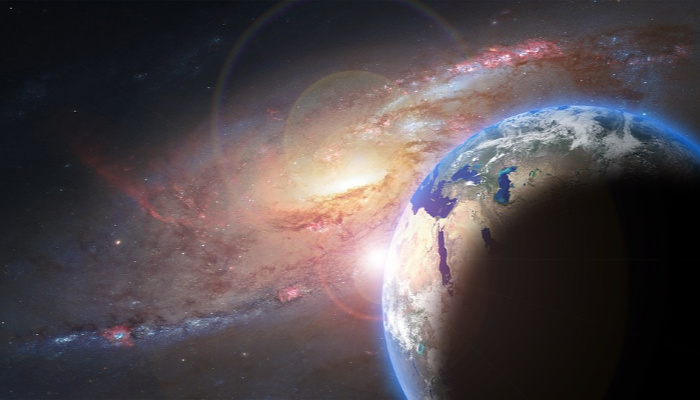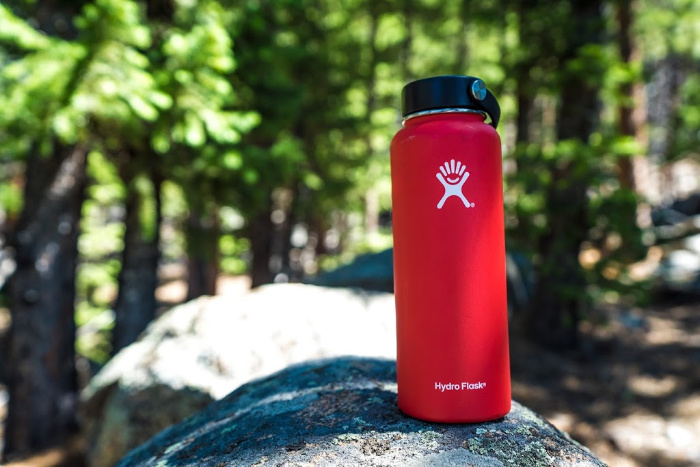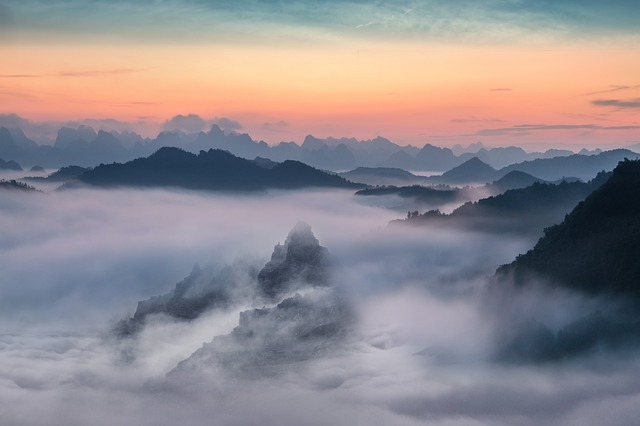Why Latter-day Saints Need to Be Better Environmentalists
Growing up, I didn’t think a whole lot about recycling, let alone taking care of the environment. The bin my plastics went into had more to do with whether the trash can or the recycling bin was in closer proximity to me than on what was actually good for the planet.
But that all changed for me the second I read these words by Elder Steven E. Snow of the Seventy:
“[We will] be held accountable for how we treat . . . the land that surrounds us, even the earth itself. That stewardship has never been more urgent. Our generation, more than any other, has the ability to irretrievably change the land.”
Those words impacted me in a big way and made me realize something: as Latter-day Saints, we have an obligation to be better environmentalists. It isn’t just a nice thing to do—it’s our duty to take care of the earth, one of the greatest gifts God has ever given us.
A Sacred Gift
 ChurchofJesusChrist.org’s “Gospel Topics” include one called “Environmental Stewardship and Conversation” and it’s fantastic. It tells us:
ChurchofJesusChrist.org’s “Gospel Topics” include one called “Environmental Stewardship and Conversation” and it’s fantastic. It tells us:
“To truly reverence the Creator, we must appreciate His creations.”
Part of reverencing the Creator, and appreciating the earth He has given us, is taking good care of the gift we have been given. The essay goes on to say:
“This beautiful earth and all things on it are the creations of God (see Genesis 1:1; Moses 2:1; John 1:10; 2 Nephi 2:14). As beneficiaries of this divine creation, we should care for the earth, be wise stewards over it, and preserve it for future generations. The earth and all things on it are part of God’s plan for the redemption of His children and should be used responsibly to sustain the human family (see 1 Nephi 17:36; Moses 1:39; Abraham 3:24–25). However, all are stewards—not owners—over this earth and its bounty and will be accountable before God for what they do with His creations (see Doctrine and Covenants 104:13–15). All humankind should gratefully use what God has given, avoid wasting life and resources, and use the bounty of the earth to care for the poor and the needy (see Doctrine and Covenants 49:19–21). . . To be complacent with His creations offends Him (see Doctrine and Covenants 59:18–21).”
God has entrusted us with one of His most beautiful creations and it’s our responsibility to care for it with the utmost respect. Anything less “offends God.” Yet on the other hand, living a more environmentally-friendly lifestyle can actually bring us closer to God.
Starting Small
 Okay, so taking care of the earth is clearly important — but to be honest, even knowing where to start in our environmental journey can be daunting. Personally, I knew I wanted to change my habits and become better at caring for the planet, but I wasn’t sure where to begin — so I reached out to someone in my life who is passionate about the environment and sustainability, Becky Biggs.
Okay, so taking care of the earth is clearly important — but to be honest, even knowing where to start in our environmental journey can be daunting. Personally, I knew I wanted to change my habits and become better at caring for the planet, but I wasn’t sure where to begin — so I reached out to someone in my life who is passionate about the environment and sustainability, Becky Biggs.
Becky Biggs, born and bred in England, was my companion on my mission and is a phenomenal person. She cares deeply about the earth and treating it well. Though she’ll never admit it, she is an amazing environmentalist — one who I knew had so much to teach me. Because of that, it was no surprise that when I asked her how to begin being more environmentally conscious, she had some fabulous answers.
“Buy a reusable water bottle. It really is that simple. I know some water systems may be a little bit sketchy, but you can easily get a filter on your tap or purchase a filtered jug. It is not only a super easy way to cut down on your plastic waste, but it definitely saves you money, too.
If you want a second easy-peasy option, don’t bag your groceries in plastic! If you still want to bag your fruit and veg at the store, you can buy/make your own reusable fabric ones or use paper (but reuse these too or the trees will be sad). Bring your own totes, reuse cardboard fruit & veg boxes from the store, or just push the cart (or trolley for my UK babes!) to your car and transfer directly.
This third one is to recycle. Find out where your nearest recycle centre is and factor it into your weekly routine if you can. Encourage neighbours or friends to join you — you could collect recycling together if it’s easier. Reuse jars, party decorations, and cute clothes! Have swap shops with your friends; go thrifting. We don’t need to buy everything brand new to feel satisfied.“
I loved Becky’s tips because they are SO easy to execute. Buying a reusable water bottle not only saves the environment — it saves us money! And ditching plastic for paper or cloth is a quick and easy way to promote sustainability. Easy suggestions that have a large impact? Uh, sign me up, please.
Even still, it might feel easy to become discouraged with our seeming lack of progress when it comes to making big changes.
“People say to me, ‘Good for you, I’m really bad at all that environmental stuff.’ But so am I!” said Becky. “Honestly, I post a bunch of stuff on Instagram about ways I’m changing, but I also try and post about the things I struggle with. But that doesn’t mean we stop trying.
If you went to your Bishop and said, ‘Yeah so I’m really struggling with fitting church into my routine so I’m gonna stop coming,’ or ‘I’ve tried really hard to stop judging all my neighbours but it’s too hard so I’m gonna keep doing it anyway,’ do you think he’d say ‘Yeah, that’s fair enough’? Or do you think he’d help you to find ways to combat your struggles?
It’s the same with Heavenly Father. Even if we’re bad at something, He wants us to keep on trying. Maybe we dip a toe in, maybe we dive in and make adjustments, but if we really want to improve our environmental habits to further increase our spirituality and commitment to God, then we can. We can pray about it. We probably can’t find all the answers in the scriptures, but further study via valid resources is a good start, as well as starting off with the Word of Wisdom.“
Each of us can take better care of the earth, and it doesn’t have to be in huge, life-altering ways. Just as Alma reminded his son Helaman, “[B]y and simple things are great things brought to pass . . .”
Stewards, Not Owners
As I’ve been studying this topic and learning about the Saints’ responsibility to care for the environment, one thing has been repeated over and over in everything I’ve looked at: We are stewards, not owners.
Our earth belongs to God, and He has given us the gift of living here and allowing us to care for it. But it doesn’t actually belong to us.
So what exactly does this mean? I think of it like housesitting for someone. If you were paid to watch someone’s house while they were away, they would trust you to take care of it, right? Can you imagine how they would feel if while they were gone, you totally trashed the place? Dirty dishes everywhere, random holes in the wall and scuffs on the floor from wild parties or games with friends, or broken windows and doors? They certainly would never trust you to house-sit for them again, and they probably (and understandably) wouldn’t pay you.
Similarly, we’ve been trusted to “house-sit” for this earth and we’re being paid in salvation. It’s our duty to take care of, preserve, and protect it. If we return to God and admit that we didn’t care for the earth at all, He — much like the fictional family you house-sat for — is not going to be pleased.
The Church’s Newsroom also has a page called “Environmental Stewardship and Conservation,” which summarizes the ChurchofJesusChrist.org’s topic by the same name. It reminds us:
“The earth and all things on it should be used responsibly to sustain the human family. However, all are stewards — not owners — over this earth and its bounty and will be accountable before God for what they do with His creations.
Approaches to the environment must be prudent, realistic, balanced and consistent with the needs of the earth and of current and future generations, rather than pursuing the immediate vindication of personal desires or avowed rights. The earth and all life upon it are much more than items to be consumed or conserved. God intends His creations to be aesthetically pleasing to enliven the mind and spirit, and some portions are to be preserved. Making the earth ugly offends Him.”
The earth is ours to watch over and love, not own and manipulate.
The Earth is Going to Be Perfected Anyway — So What’s the Big Deal?
 Talking with Becky, I mentioned this line of thought. After all, the tenth article of faith explains “that the earth will be renewed and receive its paradisiacal glory.” So if it’s going to be restored to perfection no matter what we do, why are we trying so hard to preserve it?
Talking with Becky, I mentioned this line of thought. After all, the tenth article of faith explains “that the earth will be renewed and receive its paradisiacal glory.” So if it’s going to be restored to perfection no matter what we do, why are we trying so hard to preserve it?
“Regardless of outcome, the way we act is how we will be judged,” said Becky. “This attitude is in line with ‘I am not willing to change, so I will come up with a way that makes me feel better about not wanting to change.’ [Think about it this way]: I’m going to be fully resurrected in the next life with a perfected and glorified body. Should I go get piercings and tattoos from head to toe and then smoke, drink, and binge my way to obesity and death? Probably not. Why? Because that is no way to respect the gift that God gave me and to show my love for Him.”
We take care of the earth to show God we value the gift He has given us and to demonstrate that we accept our accountability before Him. We tend to its needs because it will affect those who come after us. And perhaps most importantly, we protect and maintain God’s beautiful earth to show Him that we love Him.


